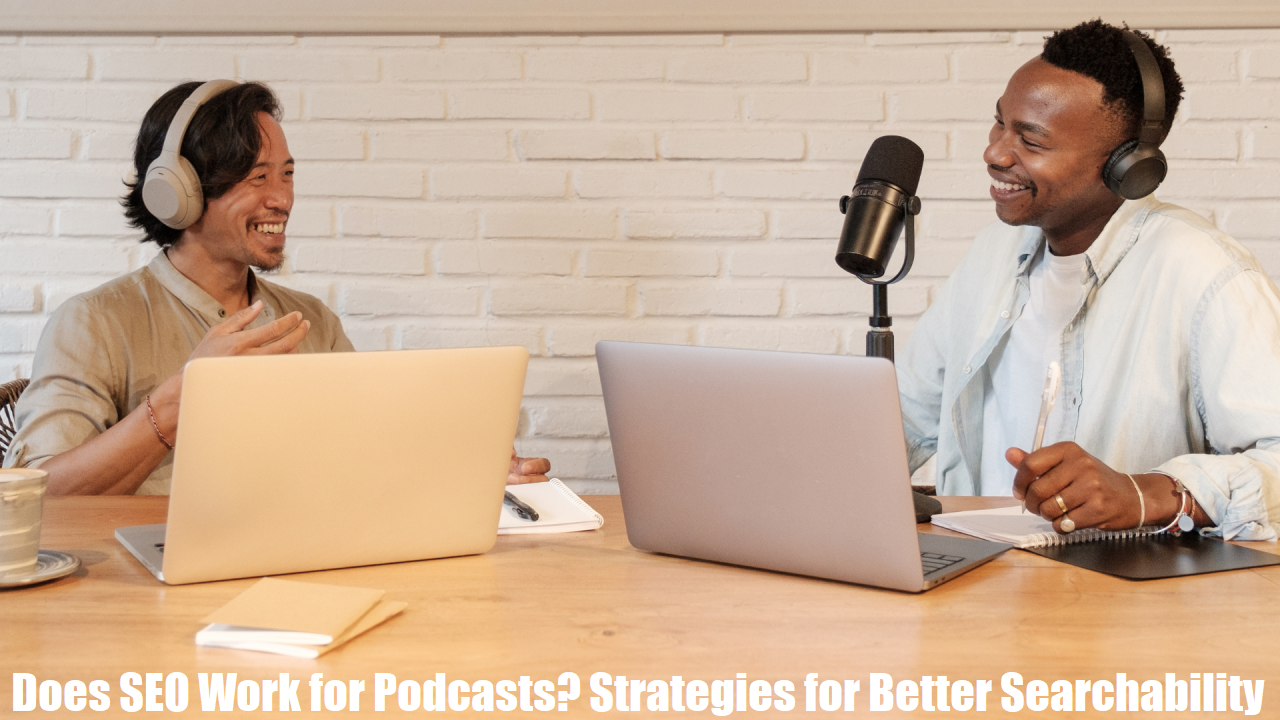Does SEO Work for Podcasts?
With the growing popularity of podcasts, creators and marketers are finding ways to make their podcasts more discoverable. SEO, or Search Engine Optimization, has long been used to increase website visibility on search engines, and it is equally effective for podcasts. When applied correctly, SEO can help podcast episodes rank higher on search engines like Google and even within platforms like Apple Podcasts and Spotify, ultimately reaching a broader audience.
What is Podcast Submission in SEO?
Podcast submission in SEO refers to submitting a podcast to various podcast directories, like Apple Podcasts, Google Podcasts, and Spotify, to increase visibility. Each directory has its own algorithm, and by submitting a podcast to multiple platforms, creators can improve its reach. This is particularly important as some directories may have specific audiences that are more likely to engage with the content.
Benefits of Podcast Submission:
- Increases exposure to new listeners
- Boosts ranking within directories
- Improves brand visibility across different platforms
How Do You Name a Podcast for SEO?
Choosing the right name for a podcast is crucial for SEO. A podcast’s name should be catchy and memorable while containing relevant keywords. Including descriptive keywords related to the podcast’s topic or niche helps it appear in search results when potential listeners search for those terms.
Tips for Naming a Podcast for SEO:
- Use Keywords: Choose keywords relevant to the topic, like "SEO podcast for beginners" or "Podcast with SEO free."
- Keep it Concise: Long titles can be confusing, so try to keep the name short yet descriptive.
- Make it Unique: Choose a name that stands out but is easy to search and remember.
For example, if your podcast is about SEO basics, a name like "
SEO 101 Podcast" can be straightforward and searchable, which improves discoverability.
Do Podcast Transcripts Help with SEO?
Yes, podcast transcripts can significantly boost SEO. Transcripts provide text content that search engines can read, allowing episodes to rank for relevant keywords. Transcribing a podcast episode can make it accessible to search engines and help rank for long-tail keywords that might be discussed in the episode.
Advantages of Using Transcripts:
- Improves accessibility for all users
- Helps search engines index episodes more accurately
- Allows for easy repurposing of content into blog posts or social media snippets
How to Make a Podcast Searchable?
To make a podcast searchable, follow these key SEO practices:
- Optimize Titles and Descriptions: Use keywords in episode titles and descriptions. For example, if your episode is about SEO tools, titles like "Best Podcast with SEO Tools" will help attract listeners interested in those topics.
- Use Relevant Tags: Tags related to your podcast's subject matter help with discoverability within podcast directories.
- Leverage Podcast SEO Tools: Tools like Ahrefs Podcast or SEO podcast Spotify can be useful for tracking how well episodes perform in search and identifying keywords to target.
Does Audio Help SEO?
Audio alone doesn’t directly contribute to SEO since search engines can’t "read" audio files. However, using audio strategically can improve SEO efforts by keeping listeners engaged, which can indirectly help with ranking factors. High engagement and longer listening times can be a signal to directories and platforms that the content is valuable, thus promoting the podcast.
To enhance SEO, combine audio with searchable titles, transcripts, and rich descriptions.
Podcast SEO tools can help optimize both audio content and accompanying metadata to improve searchability.
Does Spotify Use SEO?
Yes, Spotify and other platforms use algorithms influenced by SEO to determine search results. Spotify considers keywords in the title, description, and tags to help match users with relevant podcasts. This means optimizing your podcast for keywords related to its content can help it rank higher in Spotify’s internal search.
Spotify SEO Tips:
- Use relevant keywords like "SEO podcast Spotify" to reach listeners on the platform.
- Include relevant topics in episode descriptions and tags.
- Encourage listeners to interact by liking or following the podcast, as engagement metrics can also boost visibility.
Who Needs SEO Most?
Any podcaster looking to grow their audience should consider SEO. However, SEO is especially important for creators in competitive niches like marketing, technology, health, and personal development. For example, a creator launching a
Podcast with SEO app or offering insights in an
SEO podcast for beginners would benefit from SEO to stand out among the many podcasts in the SEO and digital marketing space.
By using SEO, podcasters in these fields can reach targeted audiences more effectively, positioning themselves as thought leaders in their niche.
Do Subtitles Help with SEO?
Subtitles, similar to transcripts, make podcasts more accessible and searchable. They provide text content that search engines can crawl, and they also make the podcast accessible to hearing-impaired listeners. Subtitles can enhance user experience and retention, both of which are crucial for maintaining listener engagement.
Benefits of Using Subtitles:
- Improves accessibility for wider audiences
- Increases time spent on episodes, which can positively affect rankings
- Makes podcast content easily shareable on social media
Conclusion
SEO for podcasts may seem complex, but it’s highly effective in expanding reach and attracting new listeners. By optimizing titles, using transcripts, submitting to directories, and leveraging SEO tools like
Ahrefs Podcast, creators can increase their podcast’s discoverability. Platforms like Spotify also factor in SEO elements, so creating engaging and optimized content is essential to ranking well and standing out in a crowded space. From beginners to experts, every podcaster can benefit from implementing SEO strategies to grow their audience.
